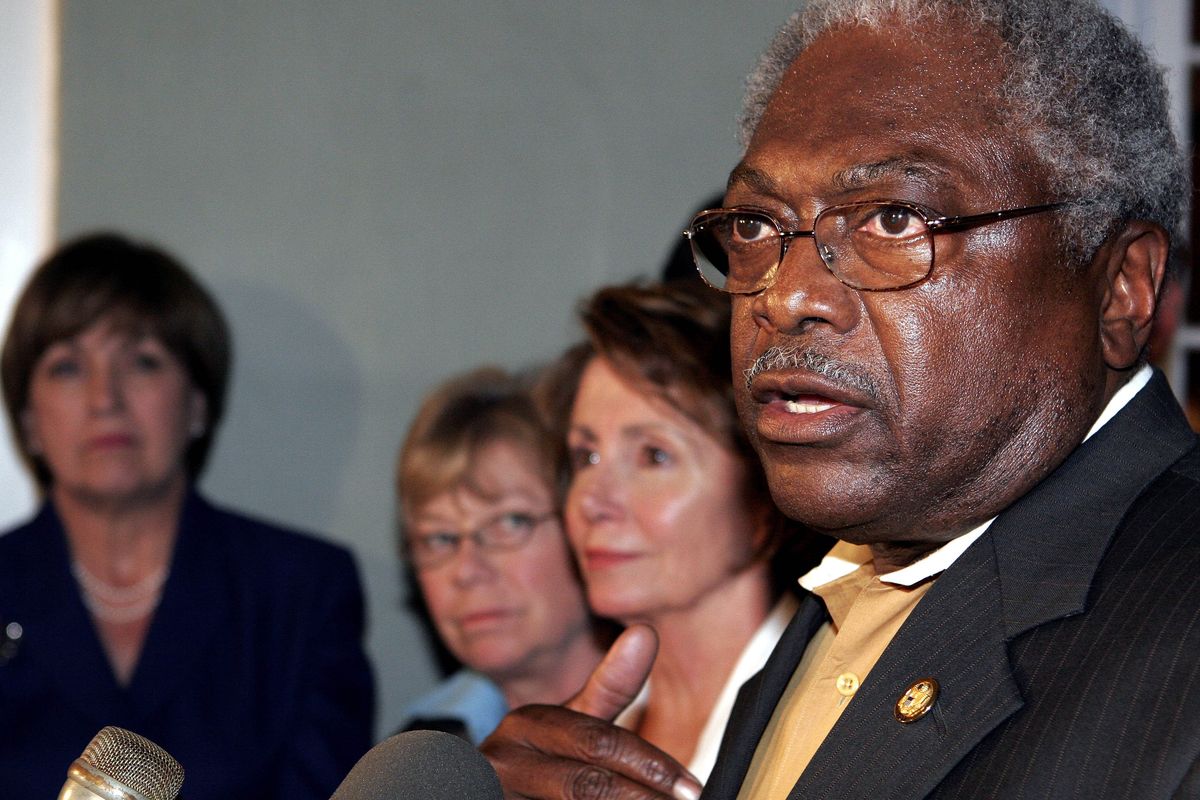Deficit panel far from solution
As deadline nears, committee crippled by partisan split

WASHINGTON – With 10 days remaining for the congressional deficit-reduction committee to strike a deal, a top Democrat said his party hasn’t agreed with Republicans on any specifics.
South Carolina Rep. James Clyburn, one of the 12 members of the Joint Select Committee on Deficit Reduction, said he is “not as certain” the committee could find consensus between Democrats and Republicans as he was just days ago.
“The fact of the matter is Democrats have not coalesced around a plan,” Clyburn, the No. 3 Democrat in the House, said on “Fox News Sunday.”
“It’s at a difficult point,” Sen. Pat Toomey, R-Pa., said on the show. “We’ve got a ways to go.”
The committee is deadlocked as it struggles to overcome deep partisan divisions on tax and spending proposals to reduce federal deficits.
The committee faces a Nov. 23 deadline to reduce deficits by $1.5 trillion over the next decade, and most members remained in Washington this weekend as the secretive panel continued negotiations.
Failure could trigger forced cuts that neither side wants.
The Republican co-chairman of the committee, Rep. Jeb Hensarling, of Texas, said he remained optimistic despite what has been “a roller-coaster ride.”
“We haven’t given up hope,” Hensarling said on CNN’s “State of the Union.”
But Hensarling acknowledged that the committee may be forced to delay its most difficult decisions on tax and entitlement reform until next year.
The panel has considered breaking the impasse with a two-step approach that would establish the outlines of a deal but propel the partisan debate over taxes into the 2012 election as committees in Congress work on the details. Such a framework was considered by President Barack Obama and House Speaker John Boehner, R-Ohio, as a way around the stalemate during the summer debt-ceiling debate.
“If this was easy, the president and the speaker of the house would have gotten it done themselves,” Hensarling said.
Hensarling also said the panel must agree to fundamental structural changes to Medicare and the other health-entitlement programs.
“Unless we deal with that, frankly, we will fail,” he said.
The two sides have been deadlocked mainly over the ratio of new taxes to spending cuts.
Compromising on such core issues is increasingly difficult as both parties face backlash from their party bases as the election season begins.
Republicans have shifted off their rigid anti-tax position to propose $250 billion in new tax revenue, largely by limiting itemized deductions used mainly by wealthy households. That offer puts the GOP at odds with the “no-tax” pledge most Republicans have signed with conservative activist Grover Norquist’s Americans for Tax Reform.
“To get to where we need to be as a country, there’s going to be required some compromise,” Republican Sen. Tom Coburn, the deficit hawk from Oklahoma, said on CNN. “Will people do what’s best for the country or best for their party and position?”